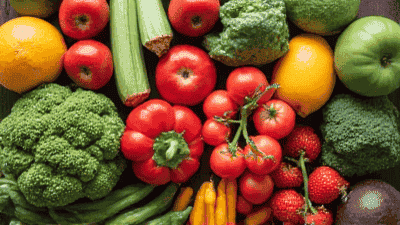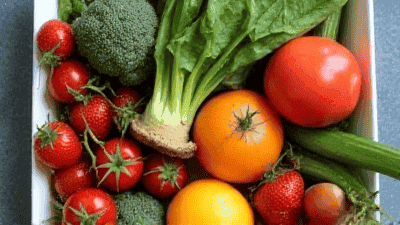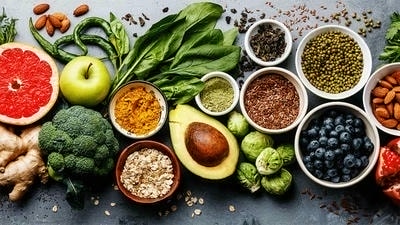
In our modern world, filled with processed foods and environmental stressors, it’s more important than ever to nourish our bodies with the right nutrients. One of the most vital groups of nutrients that have garnered attention is antioxidants. With numerous studies revealing their essential role in promoting health and preventing disease, it is time to explore what an antioxidant diet looks like, which superfoods to include, and how to effortlessly integrate them into your daily meals.
Antioxidants are substances that help protect your cells from damage caused by free radicals. These free radicals are unstable molecules that can contribute to oxidative stress, leading to cellular damage and dysfunction. This process is linked to various chronic diseases, including heart disease, diabetes, arthritis, and certain cancers.
The body does produce some antioxidants naturally, but it can benefit immensely from dietary sources. Antioxidants come in various forms, including vitamins, minerals, enzymes, and phytonutrients (natural compounds found in plants).
Vitamin C: Found in many fruits and vegetables, vitamin C is water-soluble and helps protect against oxidative stress while boosting the immune system.
Vitamin E: A fat-soluble antioxidant that helps protect cell membranes from damage. It's found in nuts, seeds, and leafy greens.
Beta-Carotene: The orange pigment found in carrots and sweet potatoes, beta-carotene is converted to vitamin A in the body and is vital for eye health.
Selenium: A mineral with antioxidant properties, selenium can be found in Brazil nuts, seafood, and whole grains.
Flavonoids: A group of antioxidants found in colorful fruits and vegetables, these compounds help protect against inflammation and heart disease.
Polyphenols: Another group of antioxidants, polyphenols are abundant in tea, dark chocolate, red wine, and various fruits and vegetables.

An antioxidant-rich diet offers numerous health benefits, including:
Numerous studies associate high antioxidant intake with a lower risk of diseases like heart disease, diabetes, and certain cancers. Antioxidants help reduce inflammation and oxidative stress, both of which are key contributors to chronic diseases.
Antioxidants such as vitamin C and beta-carotene help support your immune system, making it more effective in fighting off infections and diseases.
Antioxidants can help protect the skin from sun damage, reduce the signs of aging, and promote a radiant complexion. Vitamin E, in particular, has been shown to improve skin hydration and elasticity.
Evidence suggests that a diet rich in antioxidants can support brain health and may help protect against cognitive decline and conditions like Alzheimer’s disease.
Antioxidants like lutein and zeaxanthin, found in leafy greens, can help protect the eyes from harmful light and prevent age-related macular degeneration.
To create an effective antioxidant diet, it is essential to incorporate a variety of superfoods known for their high antioxidant content. Here are some of the top superfoods to protect your body:
Berries, particularly blueberries, strawberries, and raspberries, are among the richest sources of antioxidants. They contain flavonoids that help reduce inflammation and combat oxidative stress.
Good news for chocolate lovers! Dark chocolate, particularly those with 70% cocoa or higher, is loaded with antioxidants known as flavonoids. It has been linked to heart health and improved mood.
Green tea is rich in catechins, a type of antioxidant that helps enhance metabolism and improve overall health. Regular consumption can lower the risk of chronic diseases and support brain function.
Spinach, kale, and Swiss chard are not just rich in vitamins and minerals; they are also packed with antioxidants like lutein and beta-carotene. These superfoods also contribute to overall heart health.
Almonds, walnuts, sunflower seeds, and chia seeds are excellent sources of vitamin E and other important antioxidants. They provide healthy fats, fiber, and protein.
Vegetables such as broccoli, Brussels sprouts, and cauliflower are rich in antioxidants and have been linked to lower cancer risk due to their unique compounds, such as sulforaphane.
Beets are a vibrant root vegetable rich in betalains, known for their anti-inflammatory and antioxidant properties. They are beneficial for heart health and detoxification.
Sweet potatoes are not only delicious but also packed with beta-carotene and other antioxidants. They are beneficial for eye health and provide sustained energy.
Oranges, lemons, and grapefruits are rich sources of vitamin C, which acts as a powerful antioxidant and supports the immune system.
Spices such as turmeric, cinnamon, and oregano are packed with antioxidants and anti-inflammatory properties. Turmeric, in particular, contains curcumin, which has been extensively studied for its health benefits.

To reap the benefits of an antioxidant diet, it is essential to create balanced meals that incorporate a variety of these superfoods. Here’s how you can structure a typical day of eating focused on antioxidants:
Plan Meals Ahead: Spend time each week planning meals to ensure you have a variety of antioxidant-rich foods on hand.
Incorporate Color: Strive to fill your plate with colorful fruits and vegetables, as different colors often indicate the presence of various antioxidants.
Experiment with Spices: Enhance flavor and nutrition by experimenting with various spices and herbs in cooking.
Choose Whole Foods: Focus on whole, minimally processed foods to maximize antioxidant intake.
Stay Hydrated: Drink plenty of water, herbal teas, or green tea to stay hydrated while enjoying additional antioxidants.

Incorporating an antioxidant diet into your daily routine can significantly enhance your overall health and protect your body from chronic diseases. By embracing a variety of superfoods rich in antioxidants, you can nourish your body while enjoying delicious meals.
A balanced diet filled with colorful fruits, vegetables, nuts, and whole grains provides the necessary nutrients to combat oxidative stress and promote well-being. As you embark on this journey toward an antioxidant-rich lifestyle, remember that small changes can lead to significant health improvements over time.